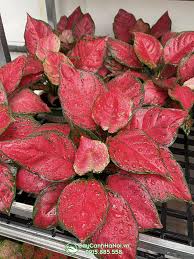The Royal Family of China and the Development of Poetry

Poetry has always been an essential part of Chinese culture, serving as a medium through which the people expressed their emotions, ideas, and reflections on life, nature, and society. Throughout China’s long history, the role of the imperial family and the royal court in the development of poetry was significant, as they were both patrons and practitioners of the art. The rise and fall of different dynasties, especially during the Tang, Song, Ming, and Qing periods, had a profound impact on the evolution of Chinese poetry.
This article explores the relationship between the Chinese royal family and the development of poetry, examining how the emperors, empresses, and courtiers influenced and contributed to this literary tradition. From the patronage of poets to the promotion of poetic ideals, we will look at how the royal family’s role helped shape poetry into one of China’s most enduring and respected art forms.
1. Early Beginnings: The Imperial Family and the Origins of Chinese Poetry
The history of Chinese poetry dates back to the early stages of the country’s civilization, with its roots stretching back to the Shang Dynasty (1600-1046 BCE). However, the golden age of Chinese poetry began during the Zhou Dynasty (1046–256 BCE), particularly during the Spring and Autumn Period (770–476 BCE) and the Warring States Period (475–221 BCE). During this time, poetry was not only seen as a form of personal expression but also as a political tool and a means of conveying moral lessons.
A. The Role of the Royal Family in Early Poetry
In the early days of Chinese civilization, the royal family had a direct influence on the development of poetry, especially in terms of preserving and promoting poetic traditions. The Book of Songs (Shijing), a collection of over 300 poems dating from the Western Zhou period, is one of the earliest and most significant anthologies of Chinese poetry. The poems in this collection were largely composed by court officials and people from various walks of life, including the royal court itself.
The royal family played a central role in maintaining and preserving the oral tradition of poetry. Emperors and kings often sought to engage with and encourage poetry as a means of educating and moralizing their subjects, as well as celebrating military victories and courtly life. Poetry became a vehicle for the royal family to showcase their wisdom, benevolence, and leadership qualities.
2. The Tang Dynasty: A Golden Age of Poetry Under Imperial Patronage
The Tang Dynasty (618–907 CE) is often considered the golden age of Chinese poetry, with many of the most celebrated poets in Chinese history flourishing during this period. The Tang emperors were keen supporters of poetry, and the royal family’s patronage greatly contributed to the flourishing of this art form.
A. The Emperors and Poets
Emperors of the Tang Dynasty, such as Emperor Taizong and Emperor Xuanzong, had an active role in shaping the poetic culture of the time. Emperor Taizong himself was a lover of poetry and was known to have invited many renowned poets to his court, including the famous poet Li Bai. Emperor Xuanzong, in particular, was a great patron of the arts, and his reign saw the rise of many celebrated poets such as Du Fu, Wang Wei, and Li Bai.
The Tang court also established the Academy of Taixue, which played an important role in educating the future intellectual elite, many of whom went on to become prominent poets. The academy’s curriculum placed a strong emphasis on poetry, and many students were encouraged to compose poems as part of their education.
B. The Influence of the Royal Family on Poetic Themes
During the Tang Dynasty, the royal family’s influence on poetry was evident in the themes explored by poets. Many poets wrote about court life, nature, and the emperor’s rule. The ideal of imperial harmony was central to much of the poetry of this period, reflecting the emperor’s role as a benevolent ruler and the ideal relationship between the ruler and his subjects.
At the same time, poetry in the Tang Dynasty also expressed more personal emotions, such as friendship, longing, and nature’s beauty. The freedom and creativity encouraged by the Tang imperial family allowed poets to explore a wide range of subjects, making Tang poetry diverse and rich in content.
C. The Role of the Imperial Examination System
The imperial examination system, which became a central feature of Chinese governance during the Tang Dynasty, played an essential role in the development of poetry. The system tested candidates on their ability to write poetry, and successful candidates were often awarded high-ranking positions in the government. This system helped establish poetry as an important tool of governance and intellectual development, further cementing its place in the royal court.
3. The Song Dynasty: Poetry and the Rise of Scholar-Officials
The Song Dynasty (960–1279 CE) saw the continued development of poetry, with an increased emphasis on the scholarly and intellectual aspects of the art form. The Song emperors were patrons of poetry, but the relationship between the royal family and poetry took on a new dimension with the rise of Confucian scholar-officials.
A. The Song Emperors and Intellectual Culture
Unlike the Tang Dynasty, where the emperor was the central figure in the promotion of poetry, the Song emperors largely supported the intellectual elite and scholar-officials. These individuals were trained in Confucian principles and were expected to contribute to the development of Chinese culture, including poetry. The Song imperial court continued to celebrate the achievements of poets, but it also emphasized the role of poetry as a means of expressing scholarly ideals and moral virtue.
Emperors such as Emperor Taizu and Emperor Huizong were patrons of poetry, commissioning works and organizing poetry competitions. Emperor Huizong, in particular, was known for his personal love of the arts and his patronage of poets and artists.
B. The Impact of Confucianism on Song Poetry
Confucianism, which emphasized education, morality, and the relationship between the ruler and the ruled, had a profound influence on Song poetry. Poets during this period often wrote about the virtues of the scholar-official, the importance of education, and the responsibilities of rulers and officials. Moral themes dominated Song poetry, reflecting the Confucian ideals of good governance and social harmony.
The Song Dynasty also saw the rise of the ci form of poetry, a style that allowed poets to express more personal and emotional thoughts. This shift from the more formal regulated verse of the Tang period to the ci form represented a new direction in Chinese poetry, with a greater emphasis on individual expression.
4. The Ming and Qing Dynasties: The Royal Family and the Preservation of Poetry Traditions
During the Ming Dynasty (1368–1644 CE) and the Qing Dynasty (1644–1912 CE), poetry continued to thrive under the patronage of the royal family, but the focus shifted more toward preserving and refining the poetic traditions of earlier dynasties.
A. The Ming Emperors and Poetry
The Ming emperors, particularly Emperor Yongle, were patrons of the arts and encouraged poetry as a way to uphold the cultural heritage of China. During this period, poetry competitions were held, and the emperor would often choose winning works to be published in court anthologies.
The Ming Dynasty saw the rise of a more refined, classical style of poetry, where scholars and poets adhered closely to the poetic traditions established by the Tang and Song dynasties. The royal court continued to encourage the composition of poems that reflected both the moral and intellectual values of the Confucian system.
B. The Qing Emperors and the Continuation of Poetry
The Qing Dynasty saw a greater emphasis on preserving traditional poetry while also adapting it to the political realities of the time. Emperors like Qianlong and Kangxi were known for their scholarly achievements and for their patronage of poets. The Qing royal court hosted poetry salons and provided support to poets who were aligned with the emperor’s values and interests.
C. The Decline of Royal Patronage and the Role of the Scholar-Poets
By the time of the Qing Dynasty’s decline, the influence of the royal family on poetry began to wane. However, poetry remained an essential part of Chinese culture, and the tradition of writing poetry continued through scholar-poets who contributed to the preservation of classical styles and themes.
5. Conclusion: The Enduring Legacy of Royal Patronage in Chinese Poetry
The royal family of China, through their patronage, influence, and personal contributions, played a critical role in the development of Chinese poetry. From the early preservation of poetic traditions to the flourishing of poetry during the Tang and Song Dynasties, the imperial court shaped poetry not only as an art form but also as a tool for governance, moral reflection, and cultural identity.
The legacy of China’s royal family and its impact on poetry can still be seen today, as Chinese poetry continues to be celebrated for its beauty, depth, and philosophical richness. The royal family’s commitment to preserving and promoting poetry helped establish it as one of China’s most important cultural treasures, influencing poets, scholars, and readers for generations to come.

